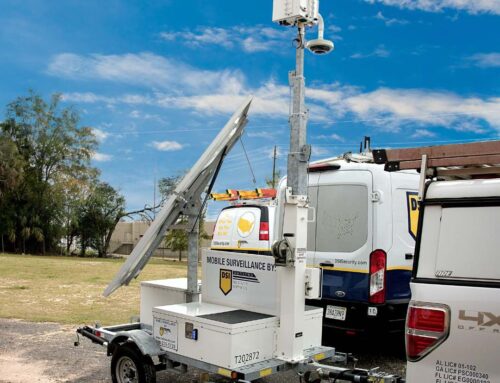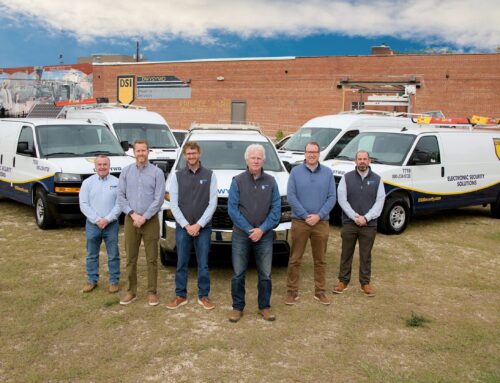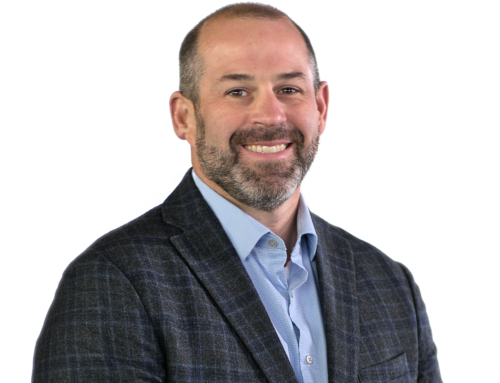Hospitals should have effective security without losing that human touch.
By Jamie Ridenhour
Healthcare accessibility, safety, and quality impact all of us, from the day we enter the world on. It goes without saying then that the security of the places that serve and ensure our health should be very important to all of us!
The United States has more than 6,000 hospitals, each providing a range of important healthcare services, from routine to emergency. Patients, visitors, and employees are occupied with big enough concerns, they shouldn’t have to worry about their safety and security. Quality healthcare facility safety and security allows patients, visitors, and employees to concentrate on what they are there for without the added stress or worry of an adverse or difficult/dangerous environment.
DSI specializes in hospital and healthcare facility safety and security, serving over 130 facilities across the United States. Keeping pace with an ever-evolving industry, DSI is also capable of providing infant abduction systems, remote video monitoring, and access control for these facilities.
A healthcare environment really is an area well given to co-mingling of people in all spectrums of mental state, and as such, susceptible to extremes in human behavior. Someone could be on top of the world after the arrival of a brand-new baby while another person is in an altered, stressed state wondering what is next on their treatment path. A woman just receiving a clean bill of health after cancer might not be that far away from a man suddenly in shock after the passing of a family member, or an irate sibling learning of a sister’s passing. These extremes in human experience can at times lead to violence or other outbursts. A New England Journal of Medicine study, which includes data from the Bureau of Labor Statistics, found that nearly 75 percent of workplace assaults occurred in a healthcare setting despite employees in the healthcare and social assistance sectors accounting for only 12.2 percent of the working population
COVID-19 has only magnified and intensified the existing concerns at healthcare facilities. During the pandemic, hospitals have had to add mask policies and extra access control measures to their normal stresses and concerns. Extra restrictions added on top of critical care needs and an often emotionally charged environment are certainly challenging to navigate.
A People Business
Hospital staff and security officers must deal with this very human reality while striving for positive outcomes in helping, healing, and all the common and complex activities taking place at the facility. It’s very important for any healthcare facility that the security program melds with their goals and how they do business. It should all work together towards assisting in keeping everyone safe and secure.
There’s no separating the human element of security services, especially in healthcare facilities. It’s about customer service. Yes, security officers are there to respond to unruly patients and other people, but quality service begins well before that. Providing good customer service starts with a professional, courteous demeanor and making good eye contact, which helps on the back end by mitigating personal and workplace issues. If a security officer is aware and proactive, this goes a long way towards mitigating bad behavior .
DSI trains officers on verbal de-escalation. It’s important to properly engage, treat people like people while also focusing on the issue at hand— practicing empathy over sympathy — and being available and inviting while also firm and striving for a security positive outcome. When security officers talk things through with people, they have a better chance of getting those involved to recognize the situational aspect of a conflict: getting people to focus on working on the issue and de-escalating instead of personalizing and escalating.
Being the expert, trusted face of security means more — and more faces — when ensuring the safety and security of a healthcare facility. Security officers must monitor entrances, of course, but there should also be a presence in high-traffic areas. A blended, team approach featuring stationary posts and roving officers checking doors and restricted areas helps achieve security coverage and consistency while boosting visibility.
Quality hospital and healthcare facility security recognizes and prepares for both the complexity of the facility and the human feelings contained within. High visibility is essential so that patients, visitors and employees feel a part of, and served by, the security program. Professional expertise combined with a healthy human connection, including strong relationships between the security officers and the healthcare facilities, go a long way toward achieving the best security outcomes.







